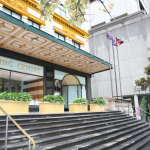Can I Drop the AVO and Assault Charges Against My Partner?

It’s no secret that some people use Apprehended Violence Orders (AVOs) for purposes other than protecting themselves from violence. Nor is it a secret that many complaints of assault are exaggerated or completely unbased.
Allegations of domestic violence are sometimes made in anger, or out of spite, and are even used to gain a strategic advantage in family law proceedings, even when there is no basis for the claims.
False complaints can be made in the heat of the moment when a couple is fighting, and the complainant may later regret their decision to make a complaint.
But what happens if the complainant wants to withdraw an AVO or an assault charge?
After the anger has passed and the situation resolved itself, it is not common for complainants to want unsubstantiated allegations against their partner or a family member to be withdrawn.
But the law doesn’t work that way.
Who “Presses” Charges?
Many people don’t realise that police are the ones that press charges and apply for certain types of AVOs (called “police AVOs”), not complainants.
This means that complainants cannot simply end the matter by advising police that they do not wish the charges or AVO to go any further.
In fact, it is generally police policy not to withdraw the charges or AVO application if the complainant in a domestic violence-related matter retracts their statement or otherwise does not want proceedings to continue, unless there are good reasons to withdraw them.
And charges can even be pressed if the complainant never gave a statement to police in the first place – the charges can be based on police observations, the initial triple-0 call and other surrounding circumstances.
Police Policy
This policy is reflected in the NSW Police Domestic and Family Violence Code of Practice. Even if a complainant does not want criminal charges laid, police are still permitted to charge a person and apply for an AVO; and police are not to withdraw charges or an AVO simply because the complainant later indicates that they do not want proceedings to continue.
This policy came about to protect victims who defend their abusers, despite having been subjected to domestic violence and in spite of the danger that they are in.
The policy was implemented after several instances where abusive partners went on to attack victims shortly after charges or AVOs were withdrawn.
But the policy change has adverse implications for those who are the victim of false complaints – in other words, those who are not abusive but are reported to police by angry partners or family members wanting payback.
It also has implications for those who police charged by police in domestic violence situation – that is, where police charge the wrong person.
In both cases, it is now more difficult to get charges and AVOs withdrawn.
What about private AVOS?
It is important to note that in NSW, AVO applications can be made by two groups of people:
- By police (police AVOs), and
- By complainant (private AVOs).
Complainants can certainly withdraw private AVOs.
What can I do if I have been falsely accused?
Although the general policy of police is not to withdraw domestic violence-related proceedings, this certainly does not mean that it cannot be done.
Assault charges and police AVOs can be withdrawn if you (or your lawyer) are able to convince police that there are good reasons to do so.
Good reasons may include that the prosecution case is inherently problematic (eg inconsistent or deficient), that there is a valid legal defence or that material has come to light casting doubt on the allegations (eg witness statements, CCTV footage etc).
If that is so, you (or your lawyer) can write to police formally requesting the discontinuation of proceedings.
Prosecuting False Complaints
Section 314 of the Crimes Act 1900 now makes it a crime to accuse a person of a criminal offence if they know that the person is innocent.
The maximum penalty is 7 years imprisonment.
And under section 49A of the Crimes (Domestic and Personal Violence) Act 2007, it is a criminal offence to make a false or misleading AVO application if you know that it is false.
The maximum penalty for that offence is 12 months imprisonment and / or $1,100 fine.
If you are facing unfair accusations, speak to a specialist criminal lawyer to find out your best course of action.
An experienced criminal lawyer will be able to provide you with the information you need to fight the charges, or can take up the fight on your behalf.
Receive all of our articles weekly
Author






